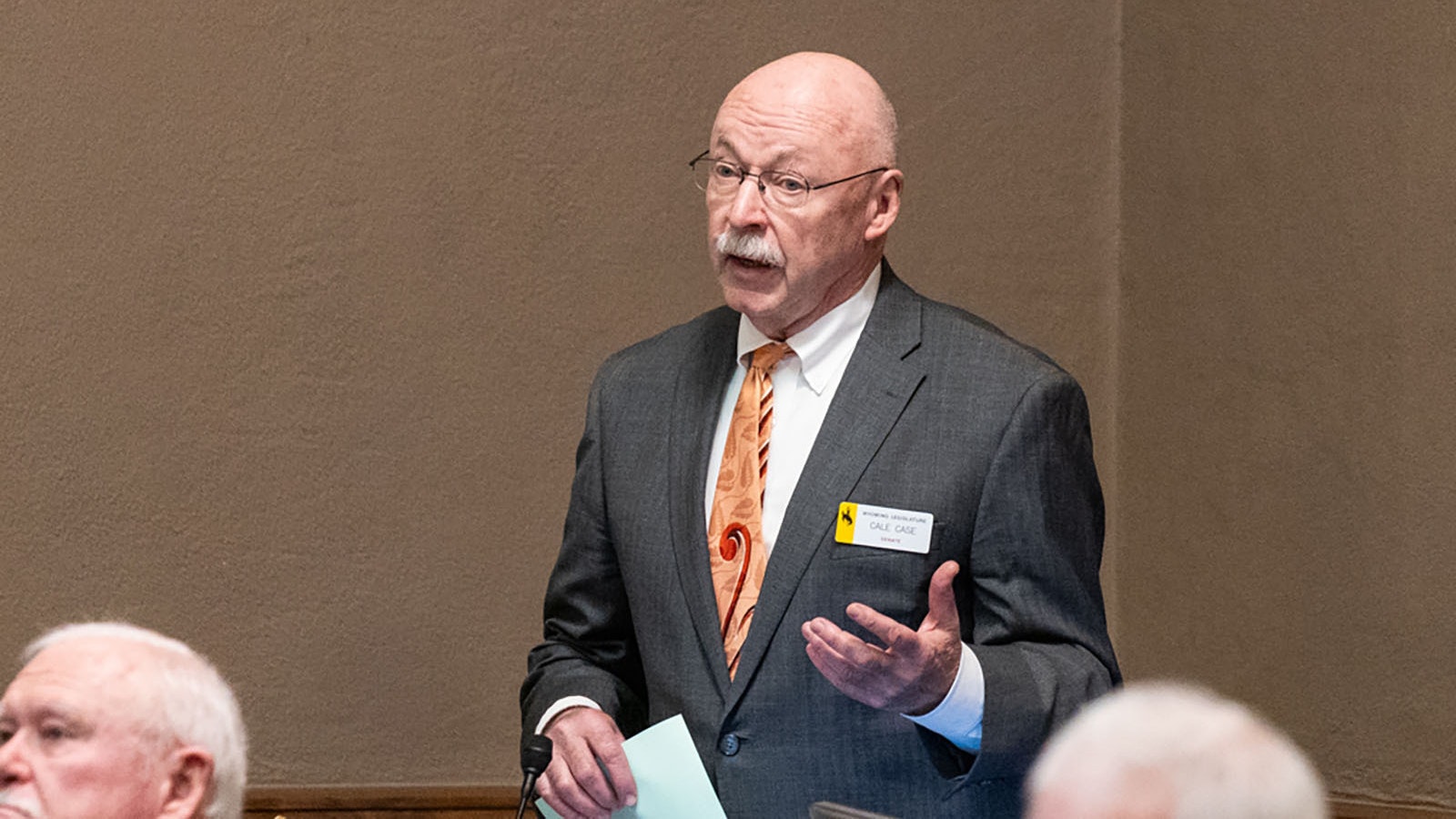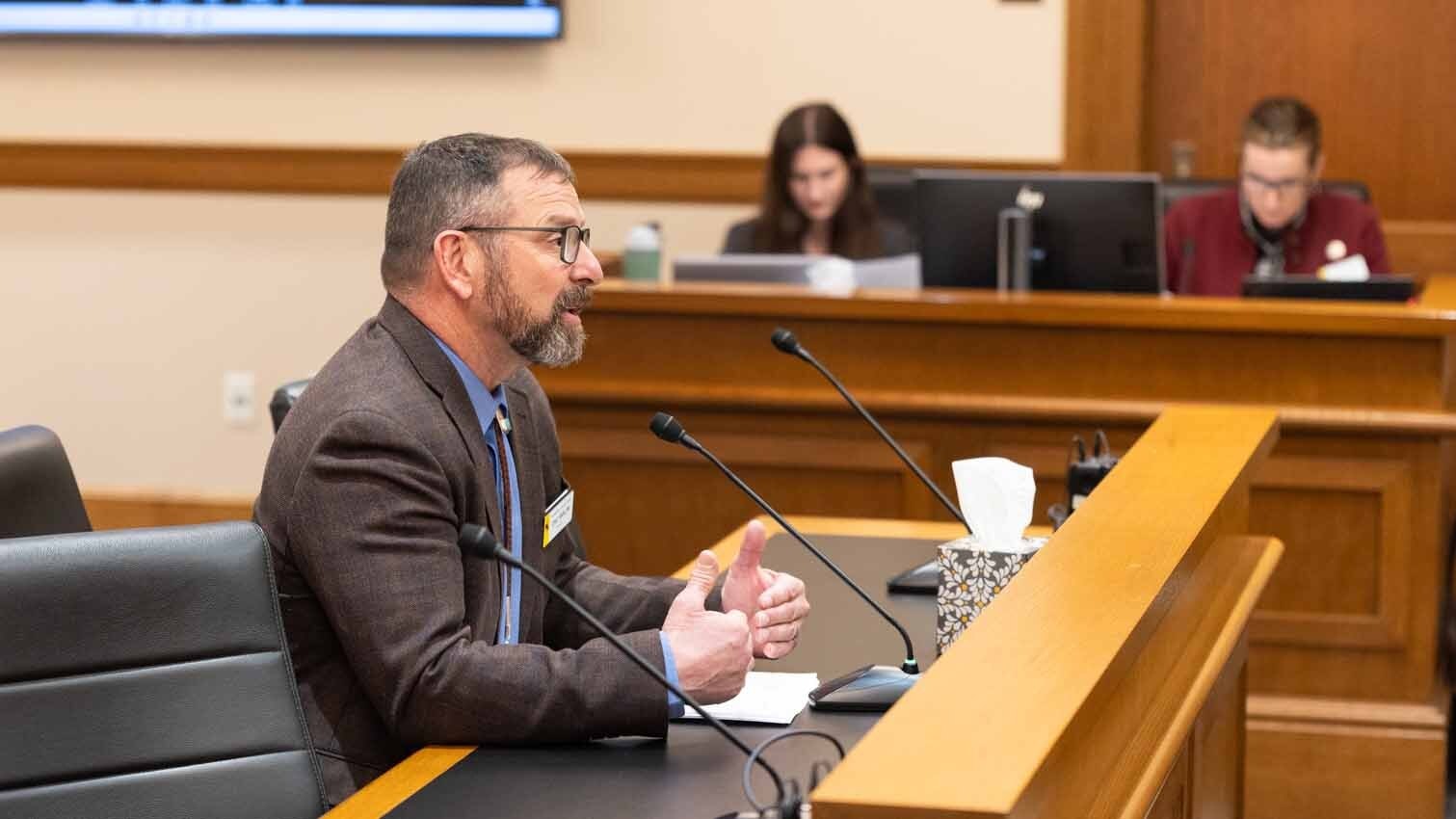Wyoming’s lone member of Congress said she’s heartbroken over the devastating wildfires that have burned more than 600,000 acres across the Cowboy State this fire season.
That includes her family’s Hartville homestead that burned in the 29,000-acre Pleasant Valley Fire.
Now with the volatile and obstinate Elk and Pack Trail fires that are making national headlines, having burned about 180,000 combined, Harriet Hageman said her sympathy for residents and landowners who have been wiped out is matched by another emotion.
She’s mad.
“It’s been a rough year for Wyoming and everyone knows that,” she told Cowboy State Daily in a Wednesday phone interview. “My own family has been affected by that at our home in Hartville. It has been devastating to watch this play out.”
That’s because the wildfires that are now threatening a number of rural Wyoming towns, ranches and subdivisions could’ve been stopped more than 20 years ago, Hageman said.
For those asking why the U.S. Forest Service or other agencies aren’t out clearing the huge volume of dense undergrowth that’s now exploding across Wyoming and the West, the answer is they can’t, Hageman said.
Roadless Rule
A 23-year-old rule pushed by former President Bill Clinton is the culprit, she said.
The 2021 Roadless Rule that Clinton championed declared 58 million acres of federal public forestland basically inaccessible to motor vehicles and proper management, Hageman said.
“This is lack of forest management and the bad policies coming out of Washington, D.C.,” she said. “That’s what’s creating this environment” for the wildfires.
“The scope, the intensity and the outcome and the impact of these fires is absolutely caused by the failure of the U.S. Forest Service to properly manage these resources,” she said.
That’s because their hands are tied by the federal rules, Hageman added.
“I am not implying the people in Wyoming are the ones causing these problems,” Hageman said. “I’ve been up there on the ranch, and those hotshots that came in and fought that fire were absolutely brilliant. Thank God we had them.”
After the rule was enacted, Hageman, an attorney, said she was hired by the state of Wyoming to fight the federal law, which gives her a unique insight into its scope and impact. What’s worse, the feds knew things like this summer’s fire season would happen because of the rule.
“At the time, they admitted it would cause an ‘ecological disaster,’” Hageman said. “They knew this was going to happen.”
Then people wonder why there’s so much mistrust of the federal government, which Hageman said is the real push behind recent conspiracy theories about the Wyoming wildfires.
The impacts of the rule are evident all across the West this summer, with huge wildfires in most Western states, she said.
“I wish more people understood the history with all this,” Hageman said. “The whole West — state after state after state have had their forests burned down.”
Lies And Evil Things
Hageman said she doesn’t believe the wild claims people are throwing around about the fires, like the Forest Service started the Elk Fire on purpose to get access to rare earth minerals.
“I see no evidence of that,” she said about the online rumors.
What she does understand is that claims like those are the result of a dishonest federal government that “lies to the people” repeatedly, and “that our government has lost an enormous amount of trust.”
“This is what happens when you have a government that lies to you,” Hageman added. “This administration has been hell-bent on making sure they can control every aspect of our lives. Do I think these fires were started by the Forest Service? No, I do not.
“Our Forest Service personnel here in Wyoming are working diligently.”
What Hageman does think is that what's happening now is a result of the overall mistrust of government, along with a roadless rule she said has been perverting the true mission of the U.S. Forest Service, which is to manage the nation’s wood and water resources for use.
“What’s creating this environment is when you have a government that’s become so hostile to its people and things like forest management and range management and water management,” she said. “To me, it’s very understandable why people would believe our government would do evil things — because our government does do evil things.”
The solution is to “get some common sense on this” and reverse policies like the roadless rule, Hageman said.
“I believe we can fix this so that 20 years for now, we’re not having this same conversation,” she said.
Greg Johnson can be reached at greg@cowboystatedaily.com.










